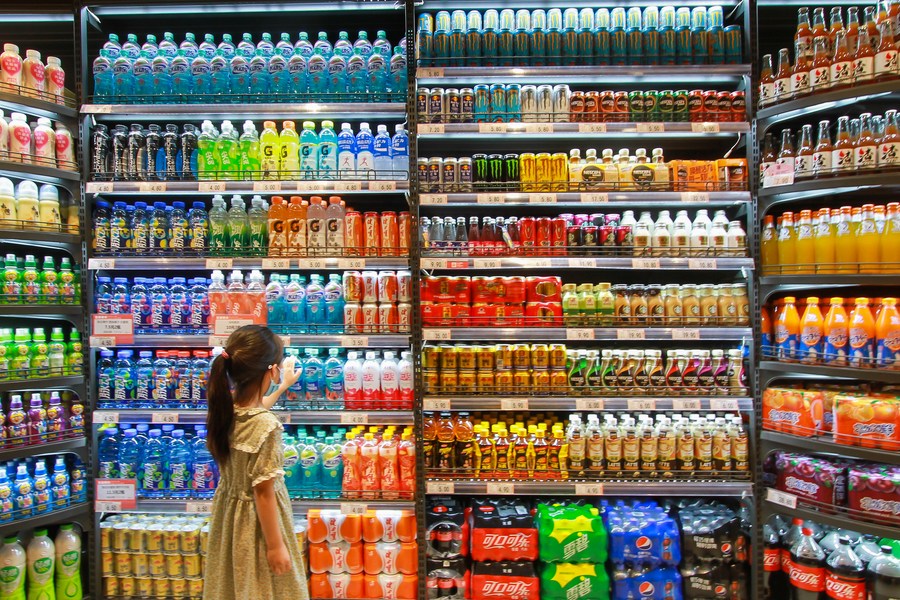China's inflation eases, tempered by food prices
China's consumer inflation eased in August alongside slowing growth in food prices, while factory-gate prices continued to moderate amid recovering industrial activities and market demand, official data showed on Wednesday.
China's consumer inflation eased in August alongside slowing growth in food prices, while factory-gate prices continued to moderate amid recovering industrial activities and market demand, official data showed on Wednesday.

A child selets beverages at a supermarket in Handan city, north China's Hebei province, July 9, 2020. [Photo/Xinhua]
China's consumer price index (CPI), the main gauge of inflation, grew 2.4 percent year-on-year last month, moderating from a 2.7-percent gain in July, according to data from the National Bureau of Statistics (NBS).
Food prices remained the main driver of consumer inflation in August, with the growth rate slowing to 11.2 percent year-on-year last month from 13.2 percent in July.
On a monthly basis, consumer prices edged up 0.4 percent, down 0.2 percentage points from July. Food prices, which have a weighting of nearly one-third in China's CPI, rose 1.4 percent last month, compared with a 2.8 percent gain in July.
The rising demand for pork, a staple meat in China, offset the pick-up in market supply, resulting in a 1.2 percent month-on-month price rise in August. The expansion narrowed from a growth of 10.3 percent in July.
The orderly restoration of economic activities helped maintain the balance between market supply and demand, according to Dong Lijuan, a senior statistician with the NBS.
The slower growth of food prices, mainly the result of a slowdown in surging pork prices, contributed to the moderated consumer inflation last month, Wen Bin, chief analyst at China Minsheng Bank, said in a research note.
Excluding food and energy, the core CPI rose 0.5 percent year-on-year, a growth rate level with July, NBS data showed.
The core CPI remained at a record-low level and overall inflation was in line with expectations, said Wen.
In the first eight months of this year, the CPI went up an average of 3.5 percent year-on-year.
Wednesday's data also showed China's producer price index (PPI), which measures costs for goods at the factory gate, fell 2 percent year-on-year in August, narrowing from a 2.4 percent drop in July.
The PPI climbed 0.3 percent month-on-month in August, the NBS data showed.
Dong attributed the rise to "continuously improving industrial production and recovering market demand."
"International prices of commodities such as crude oil, iron ore and nonferrous metals extended their upward momentum, leading to price increases for domestic industrial products," Dong said.
Producer prices in oil and natural gas extraction gained 3.6 percent month-on-month, but the growth was milder than in July. Prices in the ferrous metal mining and dressing sector climbed 4.3 percent, while non-ferrous metal smelting and rolling prices rose 3 percent.
As consumer inflation is set to moderate further and PPI is likely to rebound steadily in the coming months, inflation won't be a major constraint on monetary policies, Wen noted.
He suggested monetary policies should be more precise and focus further on stabilizing market entities, especially manufacturers and micro, small and medium-sized companies.

